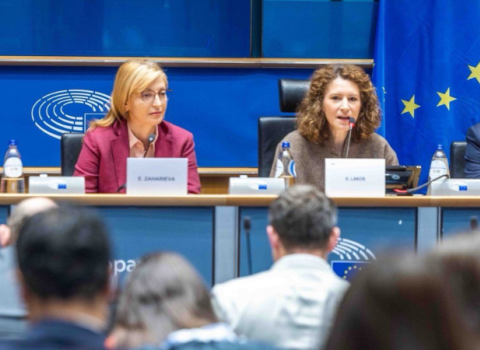The question of how to better exploit the intellectual potential of Europe, through completing the European Research Area (ERA) by 2014, is being debated in a ministerial conference and an informal meeting of the EU Competitiveness Council, taking place in Sopot, Poland, this week.
This is the first ministerial conference to discuss strategic requirements for the realisation of ERA, the EU’s single market for knowledge. The vision is that ideas and those responsible for generating them circulate freely without legislative or economic barriers. The ERA therefore needs to remove obstacles to researcher mobility and to cross-border co-operation.
The completion of ERA is a formal objective of the Lisbon Treaty, and in February 2011 the European Council endorsed the Commission’s plan, as set out in the Innovation Union strategy, that ERA should be completed by 2014.
The meeting in Poland will feed into the Commission’s proposal on an ERA framework, which is due to be presented in 2012. A public consultation will start in September.
Conference speakers from universities, research institutes and industry debated how to apply Europe’s intellectual capital to recover from the current economic crisis and build long-term sustainable growth.
As part of the Innovation Union, the Commission has already introduced specific initiatives such as the unitary patent proposal, measures to improve standardisation, and launching the pilot European Innovation Partnership on Active and Healthy Ageing.
However, many other issues still need to be tackled, such as improving researchers’ career structures, better training and increased mobility, and the modernisation of universities, before Europe can draw full benefit from its human capital.
The informal meeting of Research Ministers is considering the future of EU funding for research and innovation. In particular, the meeting will address the low participation of some Member States and regions in EU research and innovation programmes, synergies with EU cohesion policy, and measures to increase the number of small and medium-size enterprises taking part in EU research.
Research Commissioner Maire Geoghegan-Quinn told the meeting that the EU needs to prioritise innovation as the motor for growth. “We need an integrated and strategic approach, whereby our innovation objectives shape our policies in all relevant areas and at the highest level.”
While excellence is the basis for successful research and innovation funding, Geoghegan-Quinn said it is also essential to recognise that success depends on the full involvement of all regions and countries across the EU. It will be a key priority of the Horizon 2020 Framework to tackle the research and innovation gap and to maximise the contribution of all countries and regions.





 A unique international forum for public research organisations and companies to connect their external engagement with strategic interests around their R&D system.
A unique international forum for public research organisations and companies to connect their external engagement with strategic interests around their R&D system.